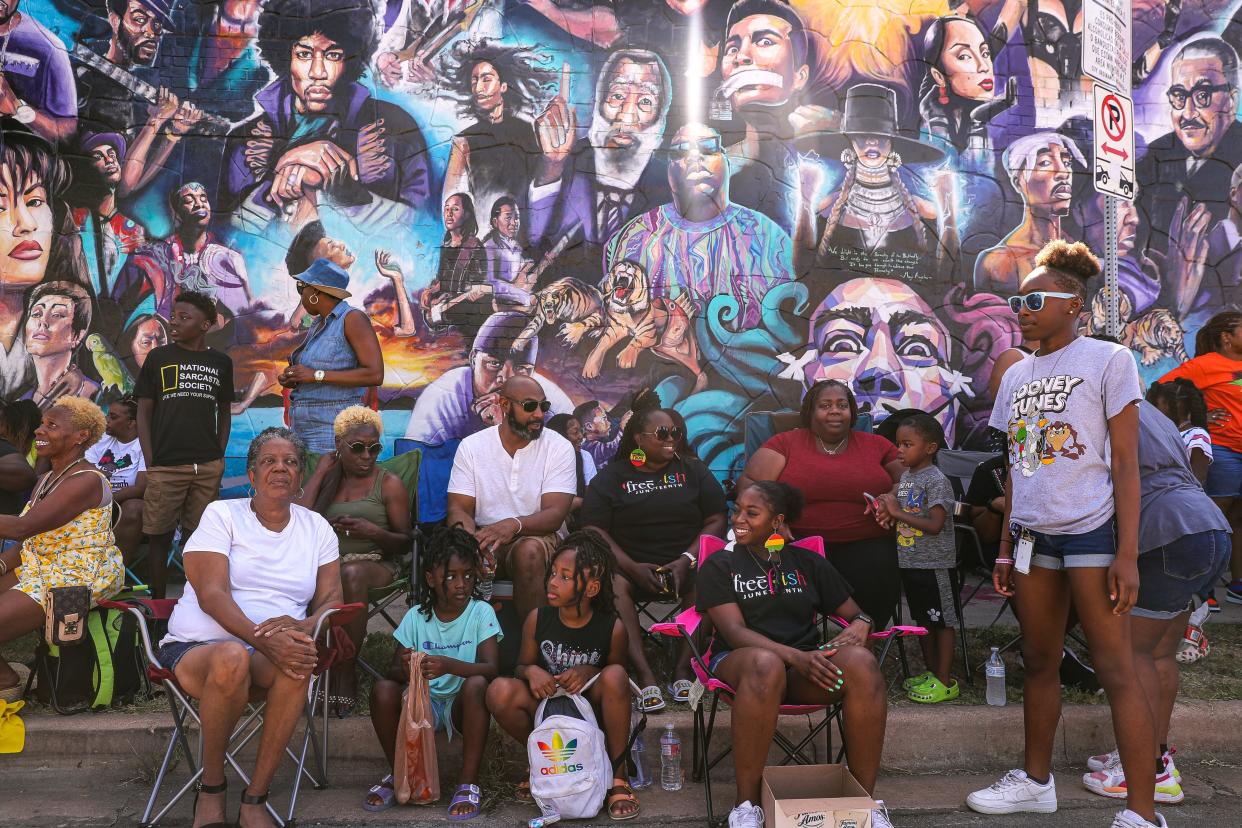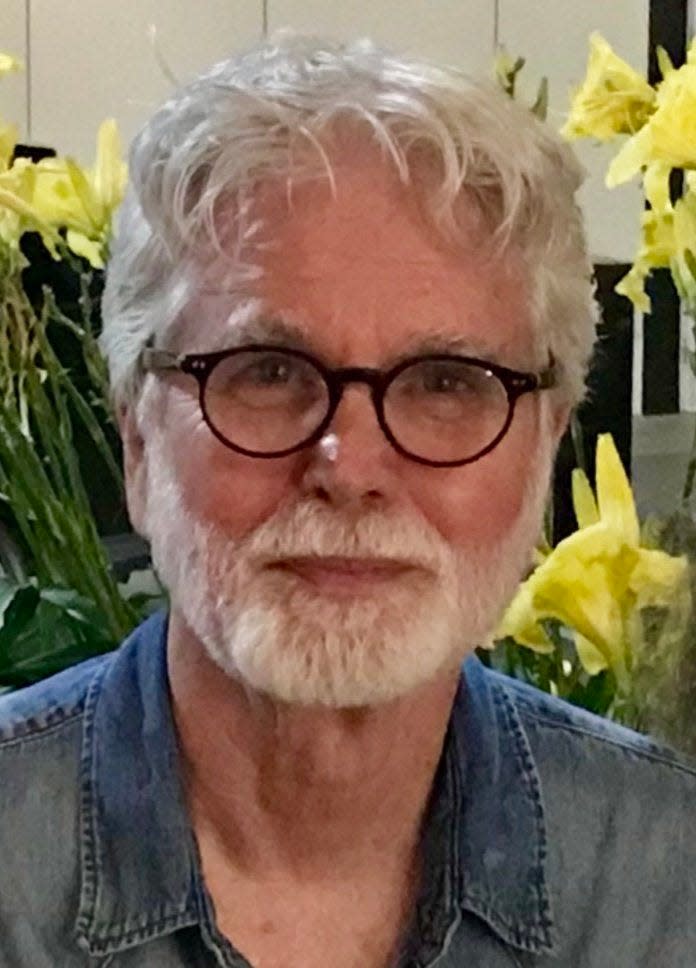Faith: We hold the key to our community's freedom

On Martin Luther King Jr. Day in 2002, my 9-year-old helped me re-learn a lesson about freedom’s potential, one relevant 20 years later. That morning our small family made their way to the Seattle-Tacoma International Airport. Our mission: drop my wife, Alix, off so she could fly from Washington state to Austin to interview for a position as an intensive care unit pediatrician — one eventually leading to our coming here to live.
After securing Liam, who was 2 at the time, in his stroller, I noticed that Alix had left our diaper bag open, after retrieving a wipe for a spill in the back seat. I quickly rezipped it before slinging it onto my back as we four headed into the airport. After returning to our parking spot, securing both kids in their seats, and stowing our stroller, I noticed something. My ignition key no longer dangled from my key chain. My handy fob got us into the minivan. I just couldn’t start it.
The black rubber loop of the key had cracked at one place a week earlier but I’d heavily duct-taped to secure it — or what I thought secure. I did a quick search around the van before extracting and expanding the stroller again and getting the kids out of their seats to retrace our steps.
After no sign of a dropped key, I asked a flight attendant to contact my wife’s plane. After a bit of resistance, the flight crew got my wife on the line. No, she’d left her key on the hook beside our front door. The flight attendant suggested going to the lost and found on the other side of the airport.
Off we went only to find this service “closed for the holiday.” Someone else suggested checking with Security, on the side of the airport we’d just left. Back we went only to learn it was also closed. As we made our way to the van once again, a two-kid meltdown ensued. They’d grown hungry and tired of the game of hide-and-seek I tried to turn our search into.

I realized one choice remained. We’d need to catch the airport shuttle back to our house to retrieve my wife’s key. The shuttle would, however, need to return us to the airport to retrieve our van. I’d already exhausted our supply of juice boxes and snacks I’d packed. The kids might make it through the first jaunt before becoming undone but they’d never endure the return trip without a pit stop for lunch.
The thought of them imploding on the 45-minute trip to our Tacoma home caused me to imagine hearing, as I lifted Alix’s key from its hook, the shuttle wheels squealing out of our driveway. I then saw myself rushing out to find my kids, their car seats, and stroller — all deposited on the asphalt and ensconced in a cloud of exhaust fumes. Shuttle drivers can endure only so much kid discontent.
Worn and informed of the expected 40 minutes wait for the next shuttle, my kids began to crank up the cranky. As the airport convenience stores were closed as well, I unslung our diaper bag to desperately dive into it, hoping to discover a few stale Cheerios or a stray cracker to buy me some time. With my hand now scraping the bottom of the bag, my fingers collided with something that sent an electric shock straight up my arm. Pulling it back out, as if from a lion’s mouth, I opened my palm to reveal to my utter disbelief my lost key.
I’d never taken that bag off my back since leaving our van. But I did, I’d suddenly remember, close it. In my haste, I concluded, I’d rezipped it with the hand holding my keys. This motion sufficiently nudged my duct-taped key, allowing it to drop into diaper bag oblivion.
Back to our vehicle we went happily to once more compact the stroller and re-snap the kids in their seats before slipping the key into its welcoming ignition slot. As we began to spiral down the parking garage ramp, Fiona exclaimed like Santa from his sleigh, “Free at last, free at last, thank God Almighty, we’re free at last; man segregated from his car keys on Martin Luther King Day!”
Even Liam, cranky as he’d become, laughed along with us in response. Fiona then went on to reflect more seriously: “Isn’t it amazing to think that, without us knowing it, the means to our freedom had been with us the whole time.”
I could feel myself tear up a bit. The lesson of our experience in the context of America’s troubled history had not been lost on my young daughter. I could only add the assurance of Jesus to this lesson in my grateful mind: “The kingdom of God is within you.”
On this Juneteenth, I nearly tear up again when confronting the reality that so many in our country don’t want to hear another word about “our troubled history.” They’d prefer to erase the days of slavery and Jim Crow from the pages of our textbooks. Some would even have us burn all literary reminders of this reality.
These folk have forgotten the wisdom of the philosopher George Santayana as well as that of the Southern writer William Faulkner. The first asserted that “those who cannot remember the past are doomed to repeat it.” The second observed that “the past is never dead: it’s not even past.”
The killing of Martin Luther King Jr. served as a wake-up call for me. I was running down the halls of my high school late for freshman homeroom that morning when I realized a senior had begun to read King’s “I have a dream” speech over the intercom. I hadn’t yet heard about the assassination, but I knew something was wrong.
Though Black friends and neighbors had been a part of my world from the beginning, I knew then I’d not truly allowed the reality of their world into mine. I had in my small way kept the status quo in play in the same way that folks in Texas continued to practice slavery for two years after the institution had ended — the result of their latent learning of the Confederacy’s fall. I pledged then that, were I to have children, they’d never become as unconscious as I’d been.
Despite my daughter’s uplifting words, however, I knew we were not “free at last.” While there remain among our American ranks those willing and wanting to deny our children the opportunity to fully know where we’ve been so they might avoid making the same life-ravaging, family-disrupting, nation-dividing mistakes, we are not free. As King once said, “No one is free till all of us are free.”
Might these lessons from history cause our children to become sad, regretful, resentful, angry, ashamed, confused and helpless to change these facts? Yes. The truth will do all that, but if we believe the words of Jesus, it will also “set us free” (John 8:320).
A friend once gave me a poster picturing a rag doll that looked exactly like one my sisters once owned — one pulled through an old washing machine wringer like one I watched my mother use. I framed and placed it behind the desk of the office of the first church I served as pastor. It read: “The truth will set you free … but first it will make you miserable.”
Within such misery, beneath its reassuring stack of fresh diapers and cuddly stuffed animal, hides the key to our freedom. Each of us contains a piece to complete the puzzle that is the here but not yet “Kin-dom” of the Creator. It reveals our connection to what has denied some of our kin a place in our national family. Only by first owning this can we transform this piece into what’s missing to complete the picture of our future.
The order Major General Gordon Granger delivered at Ashton Villa in Galveston, announcing slavery’s end on June 19, 1865, proves only the first word of “freedom for all” spoken in Texas. The rest of the story remains up to us.
Terry Dawson is an ordained Presbyterian minister and former adjunct faculty member of San Francisco Theological Seminary.
This article originally appeared on Austin American-Statesman: This Juneteenth, we hold the key to freedom
